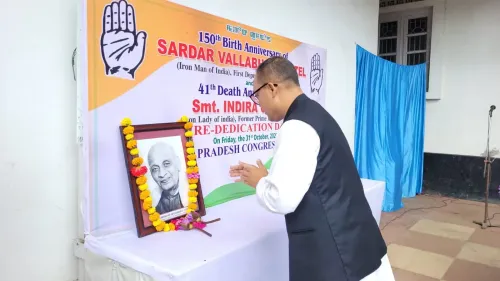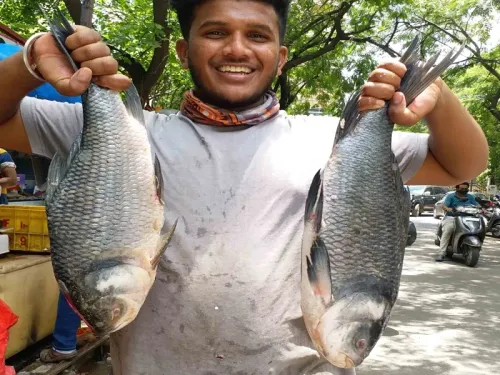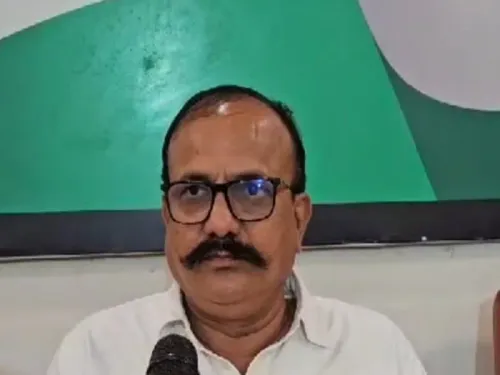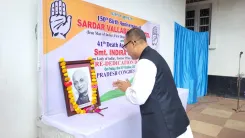Are Nepalese Citizens Leaving Gujarat's Jamnagar Amid Growing Concerns Over Unrest Back Home?
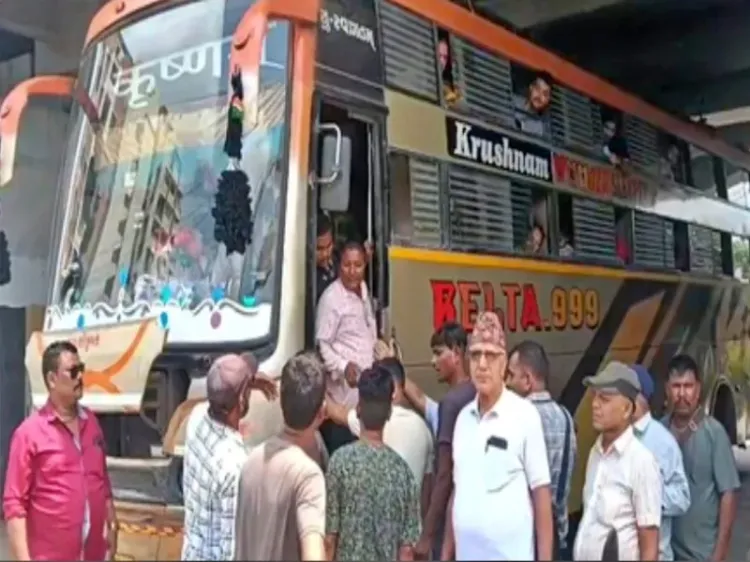
Synopsis
Key Takeaways
- Concern over safety of families in Nepal.
- Community leaders are calling for peace and dialogue.
- Ongoing violence has led to loss of innocent lives.
- Many citizens are returning home to be with their families.
- Corruption exposure is welcomed but overshadowed by violence.
Jamnagar, Sep 12 (NationPress) Members of the Nepali community residing in Jamnagar, Gujarat, are increasingly concerned about the escalating situation in Nepal. Although they welcome the exposure of corrupt leaders, they are profoundly disturbed by the ongoing violence and reports of innocent lives being lost.
A bus transporting Nepalese citizens departed from Jamnagar on Friday, aiming to reach the Nepal border in three days. These individuals, who have lived in Jamnagar for approximately a year and a half, are heading home to reunite with their families.
Due to curfews enforced in various regions of Nepal, many are struggling to leave their homes. The Nepali population in Jamnagar, which comprises around 21,000 individuals, is apprehensive about the safety and well-being of their loved ones remaining in Nepal.
Santosh Soni, a Nepalese national, stated that people in Nepal currently feel unsafe, while those from Nepal residing in India, including Jamnagar, feel secure and supported. He acknowledged the Indian government's ongoing cooperation and protection.
Additionally, in Jharsuguda, Odisha, members of the Nepali diaspora have come together to advocate for peace and national unity. The local Gorkha community organized a gathering to express sympathy for impacted families and urged all parties to abandon violence and engage in dialogue.
Neetu Thapa, a member of the Nepali community in Jharsuguda, shared with IANS: "I am deeply connected with the Nepali society. The political foundation of our country has been shaken, and the increasing frustration among youth has led to violent movements. Recent protests led by Gen-Z in Nepal were initially ignited by restrictions on social media, but the core issue remains rampant corruption."
She added: "PM K.P. Sharma Oli has resigned. Gen-Z has made its point through the movement. However, many lives have been lost, and the nation’s assets have suffered significant damage. It’s crucial to cease the violence and seek resolution."
Chaman Gurung, President of the Gorkha Society in Jharsuguda, also expressed sorrow over the unrest in Nepal.
“We are deeply saddened. Such violent protests should not have taken place. If the protest was against corrupt leaders, actions should have been aimed at them—not at the nation’s property,” he noted.
Gurung further emphasized the necessity for peace and stability in Nepal.
“What’s done is done. Now we desire a restoration of peace. While we reside here in India, our families are still in Nepal, enduring the consequences of unrest. Regardless of who becomes Prime Minister, we demand that Nepal returns to a monarchy and reestablishes itself as a Hindu nation,” he concluded.

